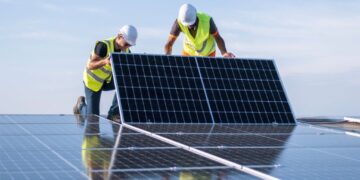Ayobami Adedinni
Zambia, Lesotho, Costa Rica, Albania, Ethiopia, Paraguay and Norway all have one thing in common-the electricity produced by all of these countries is either 100 per cent green, or a few per cent short.
Many African countries, with small domestic consumption, have renewable energy percentages to shame even the G20, a global forum for financial and economic cooperation, whose members represent 85 per cent of the world’s economic output, two-thirds of its population, and 75 per cent of its international trade.
According to data compiled by the U.S. Energy Information Administration, there are seven countries already at, or very, near 100 per cent renewable power: Iceland (100 per cent), Paraguay (100 per cent), Costa Rica (99 per cent), Norway (98.5 percent), Austria (80 per cent), Brazil (75 per cent), and Denmark (69.4 per cent).
The main renewable in these countries are hydropower, wind, geothermal, and solar.
But a renewable future seems out of reach in a country like Nigeria.
Despite its abundant renewable resources, a meager sum of electricity is sourced from renewable.
Of several attempts made by the government to stabilise electricity in Nigeria, solar initiatives seem to have made much better headway.
In July 2017, two communities in Kaduna, Gnami and Pakau celebrated 2 years of uninterrupted power from the 90-kilowatt solar Photovoltaic (PV) off-grid system installed in the areas — as the villages are far from the reach of the national power grid.
From all indications, Nigeria continues to grapple with the challenge of high-energy loss due to the physical deterioration of the transmission and distribution facilities, an inadequate metering system and an increase in the incidence of power theft through illegal connections.
Power alternatives like solar panels and inverters are expensive in Nigeria.

This situation, industry experts observe can be traced to the absence of strategic government policy to harness the various energy sources in abundance which implies that the country cannot meet her energy needs and fails to generate sufficient energy for domestic use.
Speaking, Dotun Tokun Md/Ceo, SolarMate Engineering Ltd, said although a lot of research is taking place that will lead to innovations in the solar PV market; much of these will be driven by finance which he said is difficult to access by entrepreneurs.
In his words, “We are expecting innovations in battery technology. A lot of R&D is taking place in this space and hopefully we will see lighter, cheaper and longer lasting batteries.
“Much of the innovation will be driven by finance. The ideal would be the growth of manufacturing in NIgeria (this will see a boost to the economy and to employment) but in the near future, scaling up existing markets might be more realistic and achievable.
“We might also see in the near future more efficient photovoltaic panels. The present situation sees Germany leading in deployment and China in manufacturing. Nigeria is light years behind.
“The end goal is sustainability of the Solar PV market,” he said.
Speaking further, he said the unwillingness of banks to lend to the sector could be attributed to lack of understanding and incentive.
He said, “The likes of Bank of Industry, AfDB, Crowdfunding, Trine etc are sources of funding available for solar PV entrepreneurs.
“Although they are options, access is still difficult. Commercial banks are not quite ready to lend to Renewable Energy industry, both due to a lack of understanding of the RE space and a lack of incentive for long term borrowing that it needs,” he added.
Committing to 100 per cent renewable energy means significantly more than flipping a few switches.
It requires making strong commitments to energy efficiency as well as to renewables in the three major urban energy-use sectors: electricity, heating and cooling, and transportation.
Around the world, many cities are taking steps to put their energy supplies on a more sustainable footing.
Now, more than ever, cities have the planning tools, financial incentives, technical know-how, and public support to transition to 100 percent renewable energy.
All that this movement needs is leadership from countries to lend their political, legislative, and financial weight. The world is ready. Is Nigeria?























